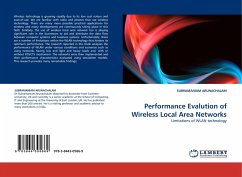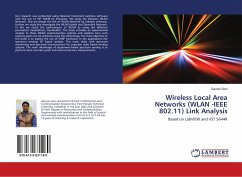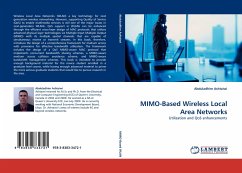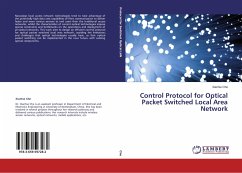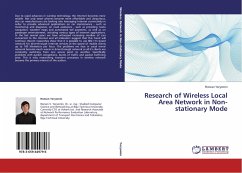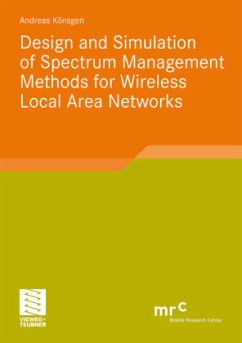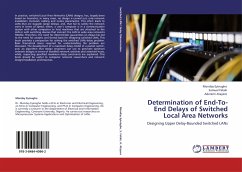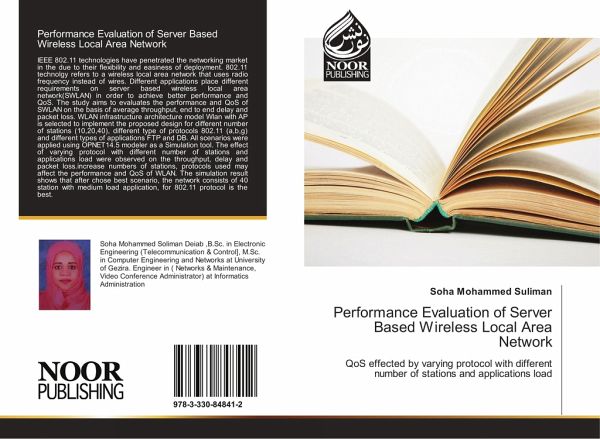
Performance Evaluation of Server Based Wireless Local Area Network
QoS effected by varying protocol with different number of stations and applications load
Versandkostenfrei!
Versandfertig in 6-10 Tagen
24,99 €
inkl. MwSt.

PAYBACK Punkte
12 °P sammeln!
IEEE 802.11 technologies have penetrated the networking market in the due to their flexibility and easiness of deployment. 802.11 technolgy refers to a wireless local area network that uses radio frequency instead of wires. Different applications place different requirements on server based wireless local area network(SWLAN) in order to achieve better performance and QoS. The study aims to evaluates the performance and QoS of SWLAN on the basis of average throughput, end to end delay and packet loss. WLAN infrastructure architecture model Wlan with AP is selected to implement the proposed desi...
IEEE 802.11 technologies have penetrated the networking market in the due to their flexibility and easiness of deployment. 802.11 technolgy refers to a wireless local area network that uses radio frequency instead of wires. Different applications place different requirements on server based wireless local area network(SWLAN) in order to achieve better performance and QoS. The study aims to evaluates the performance and QoS of SWLAN on the basis of average throughput, end to end delay and packet loss. WLAN infrastructure architecture model Wlan with AP is selected to implement the proposed design for different number of stations (10,20,40), different type of protocols 802.11 (a,b,g) and different types of applications FTP and DB. All scenarios were applied using OPNET14.5 modeler as a Simulation tool. The effect of varying protocol with different number of stations and applications load were observed on the throughput, delay and packet loss.increase numbers of stations, protocols used may affect the performance and QoS of WLAN. The simulation result shows that after chose best scenario, the network consists of 40 station with medium load application, for 802.11 protocol is the best.



